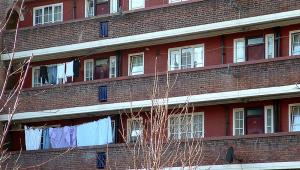Housing Benefit for people aged under 25 could be scrapped as part of a range of welfare reforms, Prime Minister David Cameron said today.
He called for ‘a real national debate’ on benefits for people of working age, saying it was time to ask ‘fundamental, searching questions’ about who is eligible for support.Arguing that benefits could ‘trap people in poverty’, the prime minister said the country needed to decide what they are actually for, who should receive help and what the limits of state provision should be. However, he didn’t set out a timescale for any changes.
Currently, around one pound in every eight that the government spends is on working-age welfare – twice as much as is spent on defence, Cameron said. He added that the government could no longer ‘just throw money at the problem’.
Among the options put forward was reducing the almost £2bn a year that the state spends on Housing Benefit for under-25s. There are currently 210,000 people aged 16–24 who are social housing tenants, and eligibility encourages some young people into the welfare system, Cameron said.
‘There are many who will have a parental home and somewhere to stay – they just want more independence. The point is this: the system we inherited encourages them to grab that independence, rather than earn it.’
He highlighted the Netherlands, where the welfare system doesn’t provide for under-21s as a default, but instead expects their family to contribute if they can.
Cameron also said that there was a need to consider whether there should be a salary limit for social housing.
Between 12,000 and 34,000 households with incomes of over £60,000 live in council houses, he said, with as many as 6,000 council house occupants earning over £100,000.
Although he acknowledged that this was also ‘a difficult area’, there was a need to debate ‘who should be entitled to have their own home, funded by the state’.
He added: ‘We don’t want to stop people striving and climbing up the ladder in case they lose their home. But when you have people on £70,000 a year living for £90 or so a week in London’s most expensive postcodes you have to ask whether this is the best use of public resources.’
Cameron also called for the debate to consider whether more benefits should be time-limited, and whether any changes would apply only to new claimants or to everyone who receives them.
‘I don’t deny that these are big, tough questions. But when you have got 300,000 children living in households where no one has ever worked, then you cannot shy away from them any longer.’
The government might start working on reforms to the benefits system ‘over the next few years’, Cameron added. The Universal Credit, which will replace a range of benefits with one and is designed to incentivise work, will be introduced from next year.





















